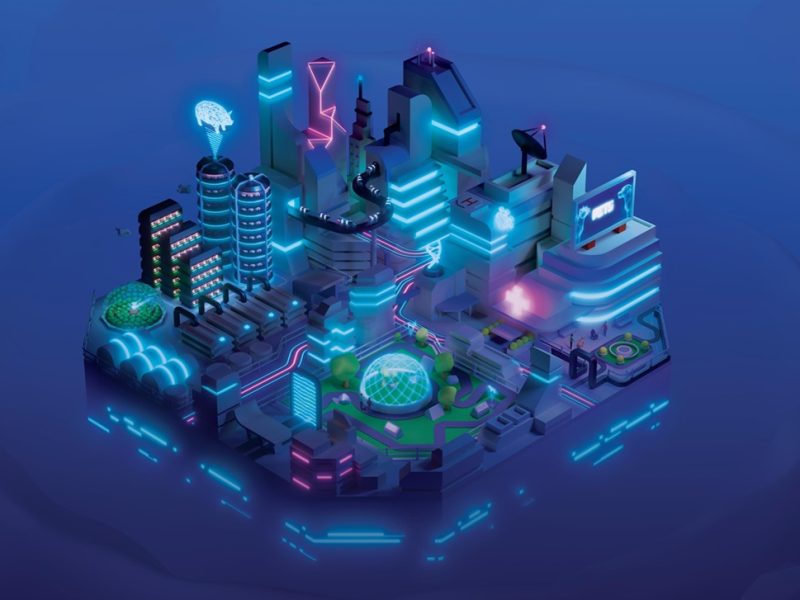GAMERS in Somerset are being invited to explore an immersive online experience from the RSPCA which considers what life might be like for animals in 2050.
From robot pets and nature retreats only accessible by the rich, to lab-grown meat and artificial intelligence allowing humans to communicate with animals, Animal Futures brings to life five possible futures for animal welfare in Somerset; and explores the consequences – for animals, people and the wider planet.
The experience, produced by creative digital agency Unseen Studio, launches the charity’s new Animal Futures Project and is based on groundbreaking research commissioned by the RSPCA.
Players are invited to explore the five scenarios and consider their role in changing the world for animals today, to create a better future for them and humans.
The RSPCA warns that “chilling” futures could lie ahead for animals, and ourselves, unless we act now – but that people in Somerset have the potential to make a difference.
RSPCA CEO Chris Sherwood said: “We need to rethink our relationship with animals – whether that be in Somerset, across the country, or the wider world.
“We know the fate of animals, whether on farms, labs, in homes or the wild, is inextricably linked to our own. Our Animal Futures project examines how factors from climate change and loss of natural habitats, to rapid technological and demographic changes, could shape the world for both animals and people.
“Some of these worlds may seem bleak, or even downright chilling – the good news is that animals’ futures are in our hands. But time is running out. Many of the scenarios explored are already happening now. We are seeing extreme heat leave cattle dying of starvation in fields in the Southern hemisphere, the rapid and unsustainable growth of lower welfare farming causing huge animal suffering as well as harming the health of people and the planet, and loss of nature on an unprecedented scale.
“But we are also seeing opportunities: lab-grown meat has recently been licensed for pet food in the UK; there are scientists using AI to decode the communication of animals from cats and pigs to sperm whales; and we are growing organs on microchips to replace animal testing. Technology could help us solve some of the most pressing animal welfare issues of our time, if we can only harness it for good.
“So we want to invite everyone across Somerset to explore Animal Futures and find out how the choices they make today could build a better world for animals – and us – tomorrow.”
In Animal Futures, people have the chance to immerse themselves in the five worlds in 2050 – each telling a very different story about what the future could hold for animals, depending on the actions society takes now. These are:
• Tech-centric: Technology has been harnessed to tackle climate change and feeding ourselves, but nature and animals have had to come second place.
• Eco carnage: Climate change has made lots of land uninhabitable, for both people and animals, and as humans struggle for survival, animal welfare is forgotten.
• Blinkered world: Attempts to tackle climate change and food production haven’t been ambitious enough, which means a mixed picture for animals and people alike.
• One Planet: The big challenges facing people have been tackled in a way that protects animal wellbeing and nature, recognising our futures are interlinked.
• Animals speak up: An amazing event has completely changed our attitudes towards animals and we have transformed the way we think, feel and act towards them.
People are asked to choose an animal companion as their character – a fox, dog or cow – to guide them through the experience. They are asked a series of questions about their own habits to find out how they could create a better world for every kind.
The online experience is based on a report from futures agency Firetail, commissioned by the RSPCA, which analyses scientific evidence, emerging trends and interviews stakeholders from across the animal sector, and related sectors like climate change and alternative proteins, as well as thought leaders and influencers, to shape their findings. It is the first of its kind for animal welfare.
Chris continued: “This report demonstrates that without urgent action, we are sleepwalking into a dismal future with irreversible and unintended consequences for all animals, including ourselves. As a country we care deeply about animals, but these scenarios demonstrate that failing to get a grip of technology, climate change and our food and farming system, in a way that is inclusive of animals, risks forcing us down a path of further exploitation and suffering, which will also have dire implications for our own prosperity, wellbeing and mental and physical health.
“Our Animal Futures project outlines the huge opportunities offered by grappling with these issues now in a way that protects animal wellbeing. These are issues that cross sectors and borders and cannot be solved in isolation. Making animal welfare a mainstream concern of our time would not only help us tackle these challenges in a way that protects the world and our place in it, it presents important economic opportunities too – by investing in alternative proteins which can help protect our natural capital, and non-animal alternatives to animal testing and the chance to become an influential global voice on these issues.”
The online experience is the first step in the project, and users will be invited to sign up to participate in the next stage – a national consultation about attitudes to animal welfare launching later this year to help shape the next steps needed for a better future for all animals.
People across the region and beyond can visit rspca.org.uk/animalfutures to experience Animal Futures or sign up to have their say on a better world for every kind.


